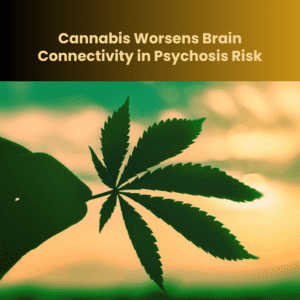Slow Cannabis Recalls May Fail to Remove Contaminated Product

Most Cannabis Recalls Issued Too Late, Analysis Reveals
A recent analysis has found that most marijuana recalls are issued too late to recover cannabis products potentially containing unhealthy levels of mold or pesticides. Amid growing concerns over product safety and allegations of labs tampering with results, state regulators often flag products as unsafe only after they have already been sold and potentially consumed.
Recall Delays Across States
The analysis examined product recalls in five state-regulated marijuana markets: California, Colorado, Massachusetts, Michigan, and New York. The findings revealed that in many cases, recalls are issued months after the products have been sold, rendering the recalls ineffective in preventing consumer exposure to potentially harmful substances.
In California, regulators issued six mandatory product recalls in July following an investigation that reported detectable levels of pesticides in marijuana products cleared for sale. These products, including vaporizer cartridges and all-in-one vaporizers sold under the Backpack Boyz or West Coast Cure brands, were first available for sale in September 2023. This ten-month delay likely meant that most affected products had already been ingested or discarded by consumers.
Industry and Regulatory Responses
Wesley Hein, president of the California Distributors Association, expressed frustration over the delays, stating, “Recalling something from 2023 is not going to result in many products still being on shelves or in possession of consumers. Operators are able to get compliance tests in under a week. The state should be able to do the same thing, so I expect that we’ll begin to see more timely recalls.”
The analysis tracked recent mandatory recalls in the examined states. In California, 12 product recalls have been issued since May 6 for pre-rolls and vaporizer cartridges with prohibited levels of pesticides and mold. In most cases, products were recalled three to ten months after being cleared for sale, with two recalls issued seven weeks after the products hit the market.
Colorado’s Marijuana Enforcement Division (MED) has issued four recalls since June 6, with affected products found to contain mold, yeast, and prohibited pesticides. The recalls came months after the products were sold, indicating significant delays in the recall process.
Regulatory Challenges and Improvements
Regulators acknowledged that product safety is an evolving concept in the $36 billion regulated cannabis industry. David Hafner, spokesperson for California’s Department of Cannabis Control (DCC), stated, “We are focusing on improving response times and prioritizing products that pose significant health risks to consumers. Our recent recalls demonstrate these improvements.”
The introduction of state-run reference labs to double-check products cleared by commercial labs is not yet universal. Michigan plans to open a reference lab by the end of the year, and Oklahoma recently granted its Medical Marijuana Authority the power to open a reference lab.
Gillian Schauer, executive director of the Cannabis Regulators Association (CANNRA), highlighted the varying capacities and authorities of states to recall products. “States have different capacity and authority to recall products. In some cases, testing and recall authorities in a state are dictated by statute, and legislative action would be needed to change the approach,” she explained. Recalls often proceed cautiously to avoid legal challenges, ensuring enforcement actions are based on due process and sufficient evidence.
Track-and-Trace Data and Consumer Safety
Despite states having track-and-trace programs, none provided data indicating how much recalled product was sold to consumers. Public-records laws in states like California protect this data from disclosure. Michigan’s Cannabis Regulatory Agency directed the analysis team to file a public-records request, which is still pending.
The analysis underscores the need for more timely and effective recall processes to protect consumer health in the rapidly growing cannabis industry. As states continue to refine their regulatory frameworks, the goal remains to ensure that all cannabis products meet stringent safety standards before reaching consumers.











